Finding the perfect canine companion can be a delightful journey, but for many, the prospect of excessive shedding can be a major deterrent. If you’re dreaming of a small dog that’s both easy to train and minimally sheds, you’re in for a treat. The world of dog breeds offers a wonderful variety of pups that fit this bill, from those who shed virtually not at all to others that only shed a little. This guide is designed to help you navigate through these fantastic breeds, ensuring you find the ideal furry friend to welcome into your home and easily integrate into your life. We’ll explore some of the most popular and suitable options, focusing on their trainability and low-shedding coats.
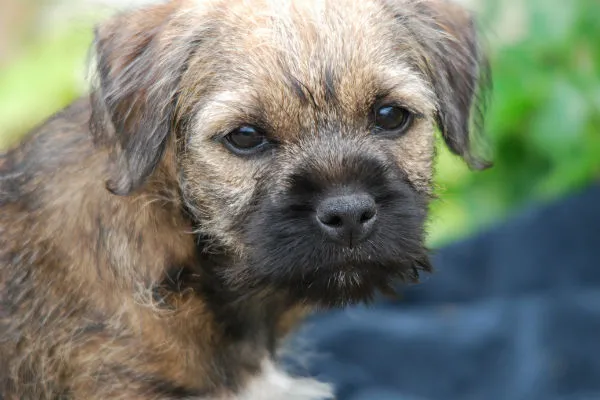 small dog breeds that dont shed
small dog breeds that dont shed
Top Small Dog Breeds That Are Easy to Train and Don’t Shed
When considering a small dog that doesn’t shed much, trainability is a key factor for a harmonious living environment. Many breeds known for their low-shedding qualities are also intelligent and eager to please, making training a rewarding experience for both owner and dog. Let’s dive into some of the most prominent breeds that excel in both these areas.
Affenpinscher
The “monkey-like terrier,” as its name suggests, is an intelligent and spirited small dog. Despite their small stature, Affenpinschers are fearless and alert, making them excellent little watchdogs. Their wiry coat sheds very little, and they possess a unique sense of humor that brings joy to their families. Their low-maintenance coat requires only a twice-weekly brushing to stay neat. This breed’s intelligence makes them responsive to training, though consistency is key.
Basenji
Often called the “barkless dog,” the Basenji is an independent and curious breed. They are known for their minimal shedding and a short, fine coat that requires little more than occasional brushing. Basenjis are also exceptionally clean dogs, often grooming themselves like cats. While they are not typically prone to barking, they do communicate through yodels and other unique sounds. Their intelligence means they can be trained, but their independent nature requires patience and positive reinforcement. They are energetic dogs that need regular exercise.
Bichon Frise
The Bichon Frise is a true delight, renowned for its non-shedding, hypoallergenic coat. These cheerful and affectionate dogs are perfect for allergy sufferers and those who despise dog hair on their furniture. Their fluffy white coat, while beautiful, requires consistent grooming, including regular brushing and baths, to prevent matting and maintain their signature “powder-puff” look. Bichons are highly trainable and eager to please, making obedience training a breeze. Their playful and social nature makes them excellent family pets.
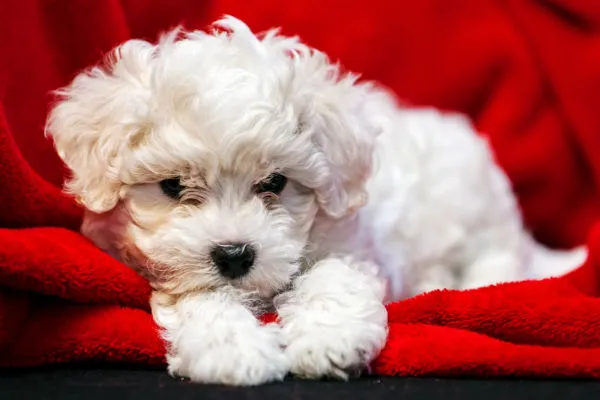 bichon frise
bichon frise
Bolognese
Similar to the Bichon Frise, the Bolognese boasts a distinctive, fluffy coat that is more hair than fur, resulting in very little shedding. These lovable lap dogs are devoted to their owners and have a gentle temperament. While they don’t shed much, their coat requires daily grooming to prevent tangles and keep them looking their best. Bolognese are intelligent and adaptable, making them relatively easy to train, especially with positive and consistent methods. They thrive in a home environment and enjoy being close to their human companions.
Brussels Griffon
Don’t let their small size fool you; Brussels Griffons are robust and independent dogs. They come in both smooth-coated and rough-coated varieties, both of which are minimal shedders. Regular grooming is necessary for both types. These dogs are loyal and form strong bonds with their families, often becoming quite attached. Their intelligence and desire to be part of the family make them quite trainable, though they can sometimes be a bit stubborn. Daily walks and indoor play are usually sufficient for their exercise needs.
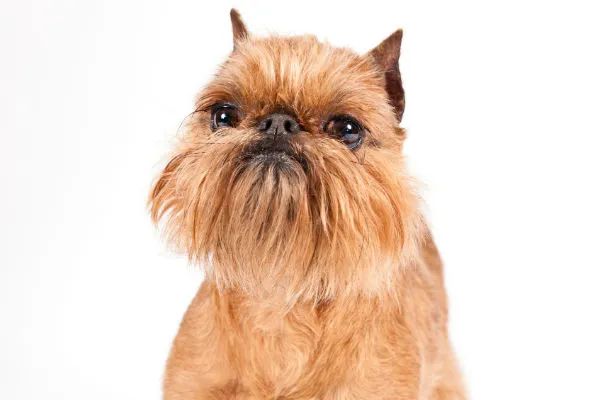 brussells griffon
brussells griffon
Chinese Crested
For those who want to avoid shedding almost entirely, the Chinese Crested offers a unique solution. Available in both a hairless and a powderpuff variety, the hairless Chinese Crested has minimal hair on its head, tail, and feet, while the powderpuff is covered in fine hair that sheds very little. The hairless variety requires special skin care, including protection from sun and cold and attention to potential skin irritations. Chinese Cresteds are known for being playful, alert, and affectionate. They can be trained well with positive reinforcement, but their sensitivity means harsh methods should be avoided.
Coton De Tulear
The Coton de Tulear, affectionately known as the “fluffy white dog,” possesses a distinctive, long, fluffy coat that is considered hypoallergenic. This makes them an excellent choice for individuals with allergies and those seeking a small dog that doesn’t shed much. Their lighthearted and gentle nature makes the effort of daily grooming worthwhile. Cotons are intelligent and eager to please, which contributes to their ease of training. They are playful, charming, and form strong bonds with their families. You can find more information on hypoallergenic dogs that don t shed to explore similar options.
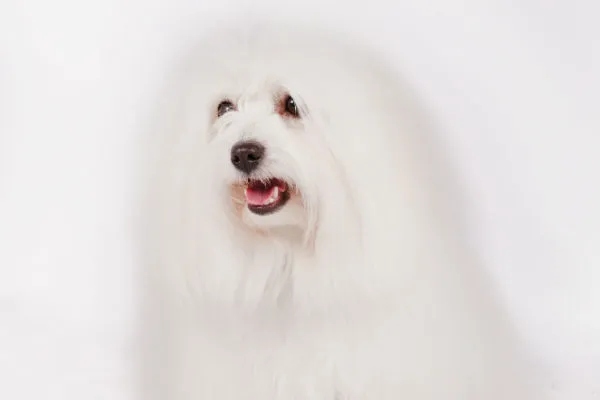 coton de tulear
coton de tulear
Havanese
These native Cuban dogs are known for their spunky charm and a coat that sheds very minimally. This means less time spent dealing with stray hairs and more time enjoying playful romps with your Havanese. Their coat requires weekly brushing and regular baths to keep it clean and healthy. Havanese are highly intelligent and thrive on human companionship, making them very trainable and eager to be part of family activities. Their cheerful disposition and adaptability make them wonderful pets for various households.
Maltese
With a lineage stretching back millennia, the Maltese has charmed humans with its elegant appearance and affectionate nature. Their long, white coats shed very little, making them an ideal lap dog. Regular brushing is essential to prevent mats, and occasional baths keep their silky hair clean. Maltese are intelligent and can be trained effectively, though they can sometimes exhibit a bit of stubbornness. Their gentle and devoted nature makes them wonderful companions for those seeking a small, low-shedding friend.
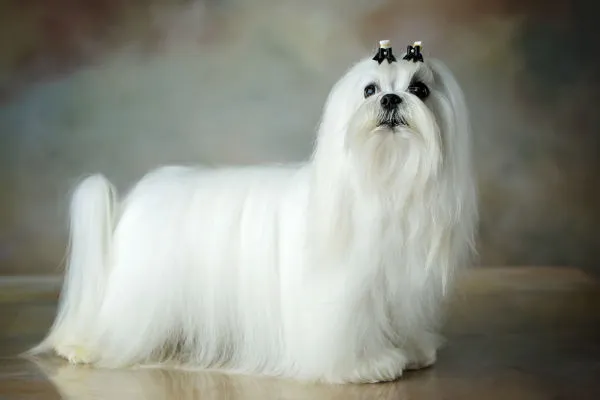 maltese
maltese
Lhasa Apso
Originating from Tibet, the Lhasa Apso makes an excellent companion dog. They are calm yet playful and enjoy both brisk walks and lounging on their owner’s lap. Lhasa Apsos are non-shedding, but their beautiful coats require maintenance. Many owners opt for a shorter “puppy cut” to simplify grooming. These dogs are intelligent and can be trained, but they possess an independent streak. Their loyalty and protective nature make them devoted family members.
Miniature Schnauzer
The Miniature Schnauzer is a smart, cheerful, and highly trainable little dog. They strongly resemble their larger Standard Schnauzer cousins. This breed sheds very little, making them a great choice for those sensitive to dander. Their adaptability allows them to thrive in both city and country environments, as long as they have their families nearby. Weekly brushing and regular grooming are recommended to maintain their distinctive coat. Their intelligence and eagerness to please make them receptive to training.
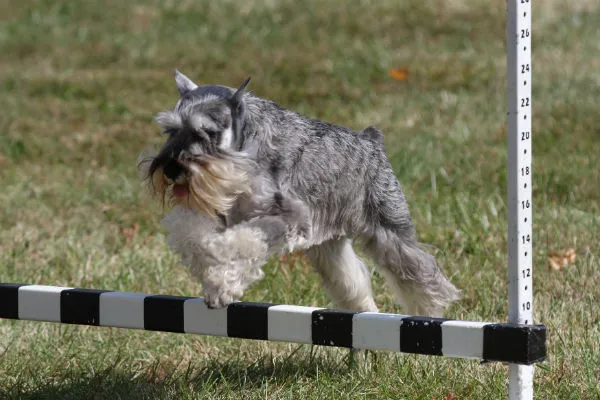 miniature schnauzer
miniature schnauzer
Poodle
Poodles, in their various sizes (Toy, Miniature, and Standard), are perhaps the most well-known small dogs that don’t shed. Their hypoallergenic coats are a major draw for allergy sufferers. Poodles are exceptionally intelligent and highly trainable, often excelling in obedience and agility. They are active, proud, and engaging companions. While their hair doesn’t shed much, it does require regular professional grooming or consistent home grooming to prevent matting. Their intelligence makes them quick learners, eager to master new commands and tricks.
Scottish Terrier
The Scottish Terrier, or Scottie, is a bold, confident, and spirited breed with a big personality. Their wiry, weather-resistant coat sheds very little. However, it does require regular brushing, grooming, and occasional hand-stripping to maintain coat health and the breed’s characteristic outline. Scotties are clever and independent dogs, and while their prey drive can be strong, they are generally trainable with consistent, positive methods. Their tenacious spirit makes them loyal and devoted companions.
Shih Tzu
The Shih Tzu, meaning “little lion dog,” has a rich history as a favored pet of royalty. These charming dogs come in a variety of colors and patterns. Their long, silky hair is very low-shedding and looks particularly regal when brushed out. Shih Tzus were bred to be house pets, and their gentle, trusting nature makes them exceptional companions. They are lively and sturdy, with a proud carriage. Their intelligence and desire to please their owners contribute to their trainability. For more options, explore good dogs that don’t shed a lot.
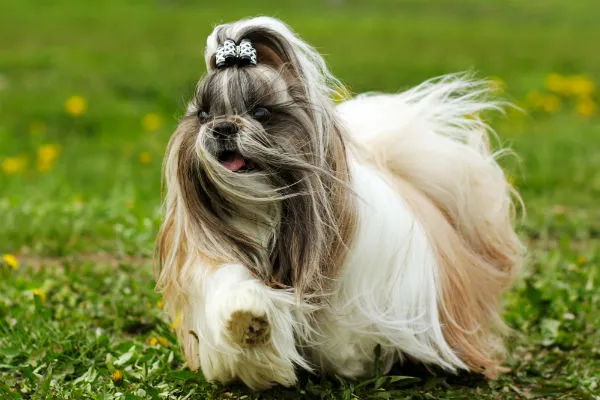 shitzhu
shitzhu
West Highland White Terrier
Affectionately known as “Westies,” these sturdy little dogs have a coarse, white coat that sheds very little. They are intelligent, loyal, happy, and highly entertaining companions. Westies are curious and possess moderate energy levels. Their independent streak, common among Terriers, can sometimes make training a fun challenge, requiring patience and consistency. They thrive on being part of the family and enjoy interactive play.
Xoloitzcuintli
Also known as the Mexican Hairless dog, the Xoloitzcuintli is an ancient and rare breed. The hairless variety has minimal hair, and the coated variety has a very short, fine coat that sheds minimally. As with any hairless breed, Xolos require extra attention to their skin to protect them from environmental elements. They are attentive watchdogs and affectionate companions. While they enjoy physical activities, they are also known for their tranquil personality at home. Their intelligence makes them trainable, especially with positive and consistent methods.
Yorkshire Terrier
The Yorkshire Terrier, or Yorkie, is a sprightly, tomboyish, and affectionate breed packed with personality. These spunky lap dogs are known for their silky coats that do not shed. Daily brushing keeps their coat beautiful and manageable. Despite their regal appearance, Yorkies have working-class roots and can be fearless. Their intelligence and desire to be with their owners make them relatively easy to train, particularly with positive reinforcement.
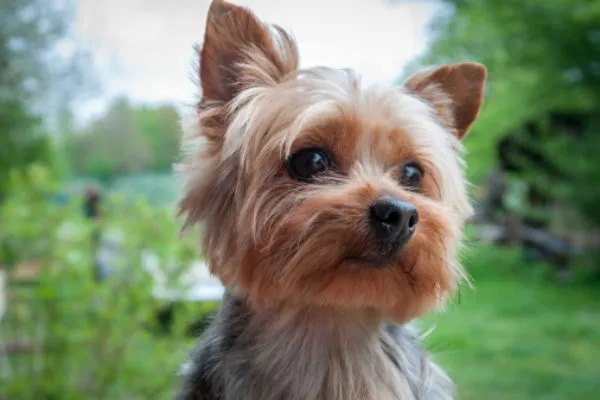 yorkie
yorkie
Training Considerations for Low-Shedding Small Dogs
While many of these small breeds are naturally intelligent and eager to please, successful training requires understanding their individual temperaments and applying consistent, positive methods.
- Early Socialization: Exposing puppies to various people, places, sounds, and other animals from a young age is crucial for developing well-adjusted dogs.
- Positive Reinforcement: Reward desired behaviors with treats, praise, and toys. This method is highly effective for intelligent breeds and builds a strong bond between you and your dog.
- Consistency is Key: Use the same commands and rules consistently. All family members should be on the same page regarding training.
- Short, Frequent Sessions: Small dogs, especially puppies, have short attention spans. Keep training sessions brief and engaging to maintain their interest.
- Patience and Understanding: Some breeds may have a slightly more independent nature. Patience and a deep understanding of your dog’s motivations will go a long way. Explore our guide on medium sized dog breeds that dont shed a lot if you’re considering larger, non-shedding options.
- Professional Help: If you encounter challenges, don’t hesitate to seek guidance from a professional dog trainer.
Conclusion
For those seeking a small dog that offers companionship without the constant battle against shedding, the breeds listed above present excellent options. Their trainability, combined with their low-shedding coats, makes them ideal pets for many households. Remember to research each breed thoroughly to ensure their temperament, energy levels, and grooming needs align with your lifestyle. Whether you’re looking for a playful companion or a devoted lap dog, there’s a perfect, easy-to-train, small, non-shedding dog waiting to become a cherished member of your family. For those interested in finding specific types of small breeds, checking out resources for toy breed dogs for sale near me can be a helpful next step in your search.
References
- American Kennel Club. (n.d.). Dog Breeds. https://www.akc.org/dog-breeds/
- (Note: In a real-world scenario, specific URLs for AKC Marketplace listings would be more precise if available and relevant to the English market. The provided links in the prompt are used for demonstration purposes.)
